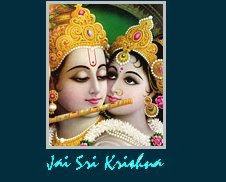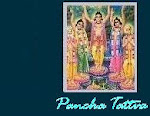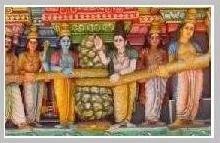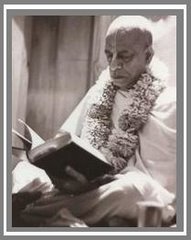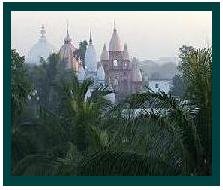Meenakshi Sinha, Bharatpur, : He stumbles and stoops, trying to get his footing right. But when he greets the audience, his voice is thunderous – “Hare Krishna Hare Ram, sabko meri Ram Ram.”
At 108 years, Nemi Baba is the oldest active Rajasthani folk musician. He plays the algoza, a wind instrument that resembles a pair of wooden flutes. With three fingers on each side of the flute and by breathing rapidly into it, the instrument emits a bouncing, swinging rhythm.
Though speculations about his age abound, Nemi, who seems to have no real idea about it, claims he’s been playing the algoza for 110 years. “He believes it. His sons believe it,” says Divya Bhatia, director of Rajasthan International Folk Festival (RIFF). “Whatever be his age, for me the artist, the man and the legend are more important. There’s something deeply spiritual about Nemi’s attitude to life.”
When the wrestler-turned-baba was recently introduced at the RIFF at Mehrangarh Fort in Jodhpur, he debated for a long time whether to sit or stand even as the audience waited patiently. Then he dropped a bombshell. This would be his last performance here, he said, adding it was because Lord Krishna told him so.
Nemi has a quirky side – he barely smiles but laughs a lot, pounding his chest as if to show that the wrestler in him is still alive. He’s so connected with Krishna that he makes everyone recite a bhajan: “Hare Krishna Hare Ram/teri gele zharu Ram/hamare ghar aao Ram (Dear lord, I’m sweeping my house clean in your name. Do visit my abode).” He claims that regular recitation of it will ward off jealous neighbours.
Krishna could not have had a more devout disciple. At 45 years, Nemi started the parikrama of Braj chaurasi kos from Deeg. This circular journey of some 260km would cover the birthplace of Krishna and touch the districts of Kosi, Nandgram, Barsana, Hodal, Basna, Mathura and Govardhan. “I would complete the journey in six days,” he says. He continued the tradition for 24 years before his health forced him to drop out.
Ask him where he learnt to play the algoza and he recalls Krishna’s raas leela as if he was party to it. “Just like Krishna played the flute among the gopis and his cows, I, too, wandered with my buffalos near the village pond when I was 14 or 15. It was there that I carved the algoza from the trunk of the andara plant (a hollow plant like the bamboo) and have been playing it since.”
The musician, who comes from the Jat stronghold of Bedham in Bharatpur district of Rajasthan, gave up his family and all worldly possessions when he was 55. Since then, he has been living in a small Radha Krishna temple, where he plays the algoza to his lord. He believes he sees the lord in every member of his audience.
While he wandered in the forests and slept in the temple, his wife would visit him to provide food and clothing and to pray together. One day, when she didn’t turn up, he went looking for her at home. She was unwell and resting. Seeing him, she reprimanded him for leaving his prayers incomplete and sent him back. When he returned, she had passed away.
Ask him how he feels today without her and he puts a brave front, but that’s only initially. Biyah kar diyo usne, bida kar diyo. Woh toh kushi kushi gayee apne ghar (“I got her married to the lord and bid her farewell. She went away happily.”) Prod further and he becomes listless. “Don’t ask, sister, how I feel,” he says, adding that he misses the kirtans with his wife. He has two sons and four grandsons.
His longevity could perhaps be attributed to his rich diet. As a wrestler, he would have 7-8 litres of milk daily and 15 litres of pure ghee in a week. Today, he prefers two litres of milk everyday and a meal of chapattis and vegetables. Nand Kishore, his grandon, explains helpfully that Nemi’s generation hardly consumed vegetables . “Most of their food was made up of milk, ghee and sweets.”
Nemi must have eaten well. It still shows, especially when he plays the algoza.
